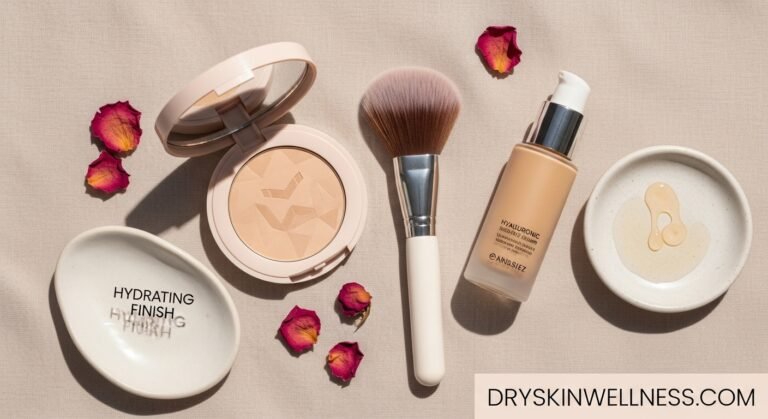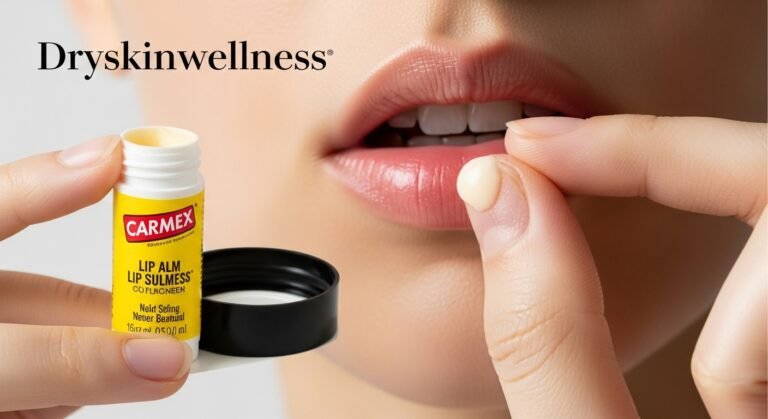What Are Pegs In Skin Care And How Do They Benefit?
Navigating the complex label of a skincare product can often feel like deciphering a hieroglyphic language, especially when confronted with acronyms like PEGs.
However, understanding the role of these often controversial ingredients in your beauty routine is crucial for anyone keen on maintaining healthy skin and staying informed about what they’re putting on their body. In this comprehensive guide, we’ll deconstruct what are pegs in skin care and how they play a role in your favorite serums, lotions, and medicinal ointments.
What are PEGs?
Polyethylene glycol (PEG) compounds are a staple of the cosmetics industry, prized for their versatility and compatibility with various product formulations. PEGs are a group of chemical compounds classified as polymers that act as emollients, emulsifiers, and vehicles for other ingredients. Their ability to enhance the absorption of beneficial components in skincare products makes them a common fixture in everything from ointments to shampoos.
Common Uses in Skin Care Products
To understand the role PEGs in skincare, one needs to appreciate their diverse uses:
- Stabilizing Ingredient Mixtures: PEGs have excellent emulsifying properties, meaning they can effectively blend oils and water to provide a consistent texture for a product, vital for maintaining its structure and integrity.
- Solvents for Active Ingredients: Some skincare ingredients are not naturally soluble in water or oil, making PEGs a valuable carrier that ensures the active components can reach the skin effectively.
- Hydrating and Moisturizing: PEGs work as humectants, drawing moisture from the air into the skin, as well as occlusive agents, forming a protective barrier to lock in that hydration.
Benefits of PEGs in Skincare
The reason PEGs are so widely used in skincare formulations is due to the many benefits they offer, including:
Enhanced Product Penetration
By reducing the natural barrier, PEGs can help other beneficial ingredients like antioxidants, vitamins, and skin-replenishing elements to penetrate deeper into the skin, leading to more effective products.
Versatility in Formulations
PEGs can be customized to achieve various consistencies — from thick creams to thin serums — making them an ideal ingredient for creating products that suit different skin types and preferences.
Emollient Properties
PEGs can soften and smooth the skin, helping to reduce dryness and flaking. This is particularly beneficial in moisturizers and anti-aging products designed to improve the skin’s texture.
Concerns and Controversies
Despite their advantages, PEGs have garnered some controversy in the skincare world, particularly due to concerns about potential health risks and environmental impact.
Allergies and Skin Irritations
For some individuals, PEGs may cause skin irritations, especially in higher concentrations or in those with sensitive skin. It’s essential for consumers to be mindful of any adverse reactions they may have to products that contain PEGs.
Environmental Impact
Certain PEGs have been identified as pollutants, particularly when they break down into smaller particles. This is a growing concern, and consumers are increasingly looking for sustainable and biodegradable alternatives.
Regulatory Considerations
The cosmetic industry has been self-regulated for many years, and while PEGs are generally considered safe to use in cosmetics, there is a growing call for more stringent regulatory oversight to ensure consumer safety.
Choosing Skincare Products with PEGs
Given the mixed opinions on PEGs, selecting skincare products becomes a thoughtful exercise. Here are steps to consider:
Reading Labels and Understanding Concentrations
Familiarize yourself with the names of various PEGs and their different functions in skincare products. Concentrations are crucial; a lower PEG rating generally means less risk of skin irritation.
Seeking Alternatives and Natural Options
If you’re concerned about the use of PEGs in your skincare products, you can opt for natural or ‘PEG-free’ lines that use alternative, naturally derived ingredients with similar effects.
“Add two more headings “
Alternatives to PEGs in Skincare Products
For those looking for alternatives to PEGs in their skincare products, here are a few ingredients that can provide similar benefits:
- Glycerin: Derived from plants and acting as a humectant, glycerin helps attract moisture to the skin.
- Squalane: This moisturizing ingredient is derived from plants and mimics the skin’s natural oils.
- Cetearyl Alcohol: A fatty alcohol that acts as a thickening agent and emollient, helping to keep the skin hydrated.
FAQ
Q: Are PEGs harmful to the skin?
A: PEGs are generally considered safe for use in skincare products, but some individuals may experience irritation or allergic reactions. It’s essential to read labels and understand concentrations when choosing products with PEGs.
Q: Can I still use skincare products that contain PEGs?
A: Yes, as long as you do not experience any adverse reactions to them. If you have concerns, opt for products with lower PEG ratings or seek alternative, natural options. It’s always recommended to patch-test new products on a small area of skin before applying all over.
Q: Are there any environmental concerns with PEGs?
A: Some PEGs have been identified as pollutants, and there is a growing call for sustainable and biodegradable alternatives. Consumers can also look for skincare brands that prioritize eco-friendly practices and ingredients. It’s essential to dispose of skincare products responsibly and follow proper recycling guidelines.
Q: Are there any regulations for the use of PEGs in skin care products?
A: The cosmetic industry has been self-regulated for many years, but there is a growing call for more stringent oversight to ensure consumer safety. It’s essential to research and choose reputable brands that prioritize transparency and quality control. Overall, it’s important to weigh the potential benefits and concerns of PEGs and make informed decisions based on individual needs and preferences.
Conclusion
Our skincare routines are deeply personal, and the products we choose to apply carry the weight of our self-care and well-being. PEGs, like most skincare ingredients, are not inherently good or bad; their effects depend on their application and the individual’s skin. By digging deeper into what are pegs in skin care are and how they interact with our body and environment, we are better equipped to make informed choices. Remember, the best skincare is not about following trends but choosing what genuinely works for you.



